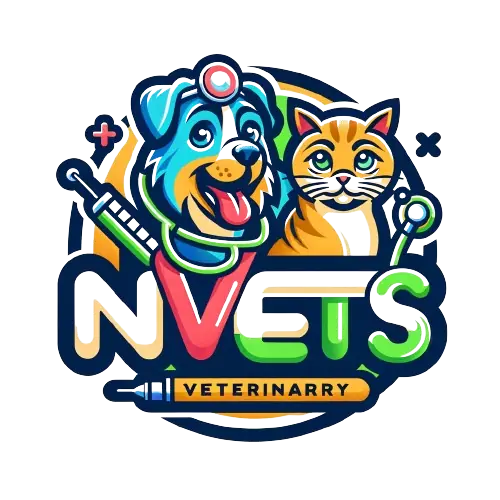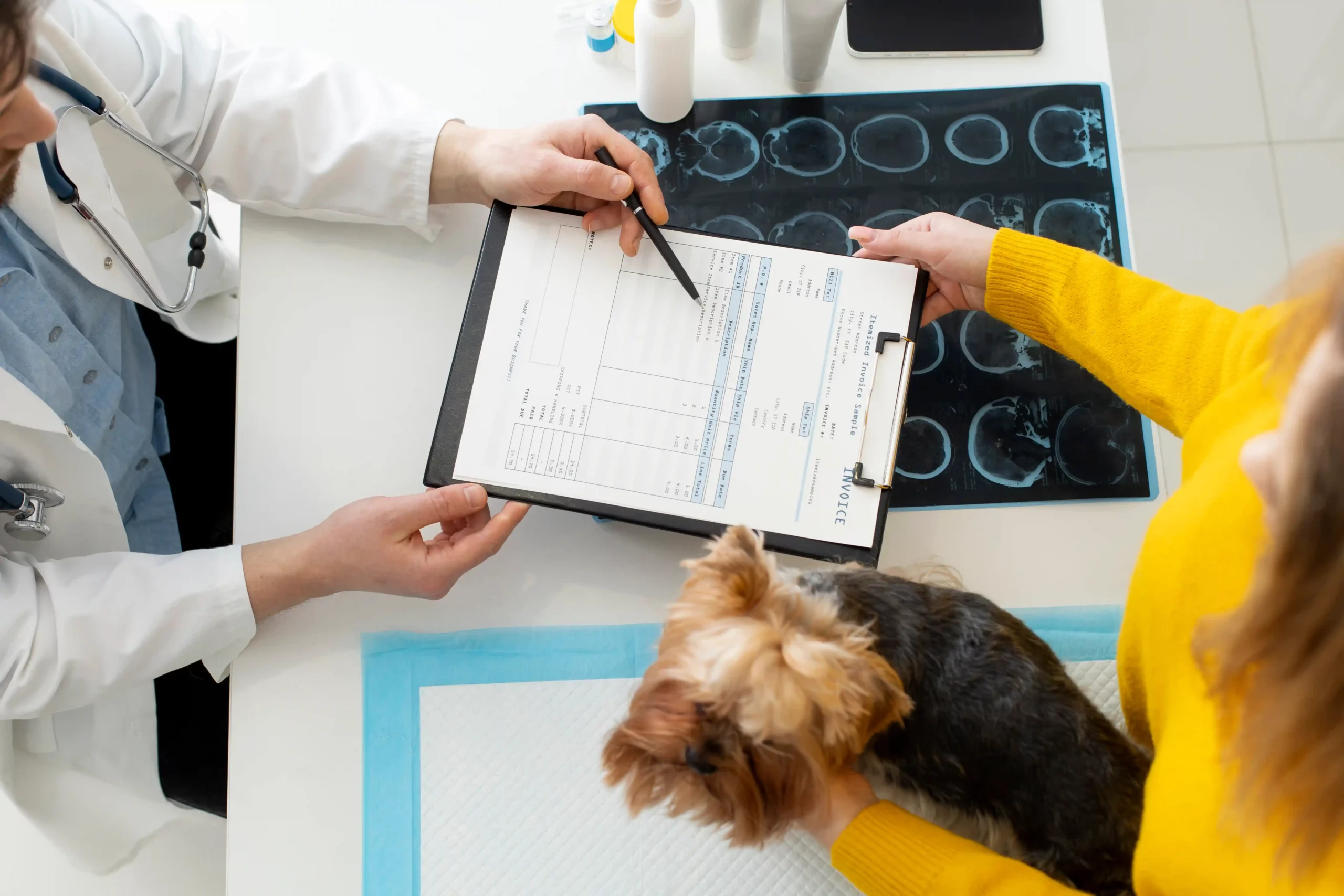Introduction
Welcoming you to a journey towards holistic pet care, encompassing the significance of wellness exams. These exams are pivotal in ensuring your pet’s overall health and detecting potential issues in their early stages. By delving into the realms of physical exams, additional tests, and nutrition & exercise recommendations, we aim to equip you with the knowledge to proactively care for your furry companion. Let’s embark on this exploration together, focusing on preventive care and utilizing insurance plans to foster a lifetime of well-being.
What is a Wellness exam?
A wellness exam is a thorough assessment of your pet’s overall health, including physical and diagnostic evaluations. It helps detect early signs of illness, provides preventive care, and promotes optimal well-being.
Why are Wellness Exams Important?
Regular wellness exams are crucial for early detection of health issues, ensuring timely intervention and maintaining your pet’s overall well-being. By conducting thorough assessments and screenings, veterinarians can identify potential problems before they escalate, leading to better outcomes and improved quality of life for your furry companion.
Physical Exam
During a wellness exam, the physical exam is a crucial component. It involves monitoring vital signs like blood pressure and heart rate, examining the musculoskeletal system, assessing for abnormal hair loss or oily skin, conducting dental and periodontal evaluations, palpating lymph nodes, and performing abdominal and rectal exams for intestinal parasites. These assessments, along with the routine physical exam and annual physical exam, provide valuable insights into the overall health of the individual, providing important information that can help identify any potential health problems or risk factors early on for the primary care provider. Primary care physicians play a vital role in conducting these exams and providing necessary care for their patients.
Vital Signs Monitoring (Heart Rate, Blood Pressure)
Regular vital signs monitoring during wellness exams, such as heart rate and blood pressure checks, are crucial in assessing an individual’s overall health. These measurements provide valuable insights into cardiovascular function and can help detect potential issues early on. By tracking vital signs, healthcare providers can identify abnormalities, assess the risk of heart disease, and tailor preventive care strategies to promote good health. Continuous monitoring of these vital signs plays a key role in preventive health maintenance.
Musculoskeletal System Exam
During a wellness exam, a musculoskeletal system exam is conducted to assess the patient’s bone, muscle, and joint health. This evaluation involves checking for any signs of inflammation, pain, or limited range of motion that could indicate underlying issues. The exam may include a physical assessment of posture, gait, and joint stability. By evaluating the musculoskeletal system, healthcare providers can identify any abnormalities or potential areas of concern that may require further investigation or management.
Abnormal Hair Loss or Oily Skin Exam
During a wellness exam, an evaluation of abnormal hair loss or oily skin is essential. NLP terms like physical exam, risk factors, and health conditions may indicate underlying issues. Detecting such abnormalities early can lead to timely interventions to improve overall health. The NLP terms like vital signs monitoring and preventive screenings play a key role in identifying potential concerns related to abnormal hair loss or oily skin, enabling a holistic approach to wellness care.
Dental Care and Periodontal Disease Assessment
Regular dental care during wellness exams is crucial for assessing periodontal disease. The examination includes checking for any signs of gum disease, tartar buildup, or tooth decay. Periodontal health is linked to overall well-being, highlighting the significance of this assessment. Neglecting dental evaluations can lead to systemic health issues, emphasizing the need for comprehensive dental care within wellness exams. Detecting early signs of periodontal disease enables timely intervention and promotes holistic health management.
Lymph Node Palpation
Lymph node palpation is a crucial aspect of wellness exams, aiding in the detection of potential health issues. By assessing the size and consistency of lymph nodes, healthcare providers can identify abnormalities that may indicate infections or other underlying conditions. This NLP technique helps in evaluating the body’s immune response and overall well-being, contributing to a comprehensive understanding of the individual’s health status. Incorporating lymph node palpation into routine wellness exams enhances the preventive healthcare approach, promoting early detection and management of health concerns.
Abdominal Palpation/Rectal Examination for Intestinal Parasite
During a wellness exam, veterinarians conduct an abdominal palpation and rectal examination to check for intestinal parasites. This is crucial in detecting any internal issues that might not be apparent externally. By palpating the abdomen and performing a rectal exam, veterinarians can identify the presence of parasites early on, enabling timely treatment and preventing potential health complications for the pet. This thorough examination is a standard practice in ensuring the overall well-being of your furry friend.
Additional Tests Performed During a Wellness Exam
Complete Blood Count (CBC) evaluates overall health by measuring different types of blood cells. Urinalysis checks kidney function and detects infections or other issues. Fecal Analysis identifies intestinal parasites, crucial for pet wellness. These tests provide detailed insights into a pet’s internal health status, aiding in early detection and prevention of potential health problems. Regular monitoring through these additional tests during wellness exams ensures proactive management of your pet’s health.
Complete Blood Count (CBC)
Complete Blood Count (CBC) is a vital component of wellness exams. This test evaluates red and white blood cells, hemoglobin, hematocrit, and platelets, providing insight into overall health. By assessing CBC results, healthcare providers can identify underlying health conditions, infections, anemia, and potential issues such as leukemia or clotting disorders. It aids in early detection and timely intervention for optimal wellness. CBC plays a crucial role in preventive healthcare, offering valuable information for personalized health management.
Urinalysis
Urinalysis is a crucial part of wellness exams, providing valuable insights into kidney function, hydration levels, and potential underlying health issues. By analyzing urine composition, healthcare providers can detect conditions like diabetes, urinary tract infections, or kidney diseases early on. This simple yet effective test aids in assessing overall health and identifying any abnormalities that may require further investigation or treatment. Regular urinalysis helps maintain optimal wellness by monitoring key indicators of bodily function.
Fecal Analysis for Intestinal Parasites
During a wellness exam, a fecal analysis is crucial for detecting intestinal parasites that can harm your pet’s health. This test helps identify parasites like worms or protozoa that may not be visibly present. Early identification can prevent potential complications and ensure your pet’s well-being. By including fecal analysis in your pet’s wellness routine, you are taking a proactive step towards their overall health. Regular screenings can aid in prompt treatment if any parasites are detected, promoting a healthier and happier life for your furry friend.
Nutrition and Exercise Recommendations at the Time of Wellness Exams
During wellness exams, tailored nutrition and exercise advice is crucial. Recommendations are based on the pet’s age, breed, weight, and specific health needs. A balanced diet high in quality proteins and low in unnecessary fillers supports overall health. Regular exercise helps maintain a healthy weight, strengthens muscles, and promotes cardiovascular health. Consult your veterinarian for personalized guidance on the ideal diet, treats, and exercise routines to optimize your pet’s well-being.
Type of Food, Treats, Supplements Recommended for Optimal Health
Text:
Nutrition plays a key role in achieving optimal health. A balanced diet with fruits, vegetables, whole grains, lean proteins, and healthy fats is recommended. For treats, moderation is key. Choose healthier options like dark chocolate or homemade snacks.
Consult a healthcare provider before taking supplements like Vitamin D, Omega-3 fatty acids, and probiotics. Remember that food and supplements are not enough; regular exercise, weight management, self-care, stress management, and wellness exams are crucial for overall well-being.
Conclusion
Wellness exams play a crucial role in maintaining your pet’s health and detecting any underlying issues early on. These comprehensive check-ups not only focus on physical exams but also include additional tests like CBC and urinalysis. By monitoring vital signs, dental care, and recommending proper nutrition and exercise, wellness exams ensure your pet stays healthy and happy. Regular exams help prevent diseases and provide a holistic approach to your pet’s well-being. Remember, proactive care leads to a longer and healthier life for your furry companion. Prioritize wellness exams to give your pet the best quality of life possible.

